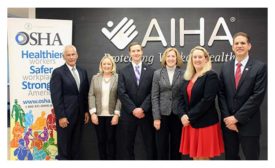Featured on Home Page
Employee safety discipline ain’t what it used to be
The focus is on “what failed?” not “who failed?”
November 12, 2018
A Confined Space blog post
Shot, stabbed and assaulted: Violence against nurses
November 8, 2018
Become a Leader in Safety Culture
Build your knowledge with ISHN, covering key safety, health and industrial hygiene news, products, and trends.
JOIN TODAYCopyright ©2025. All Rights Reserved BNP Media.
Design, CMS, Hosting & Web Development :: ePublishing











